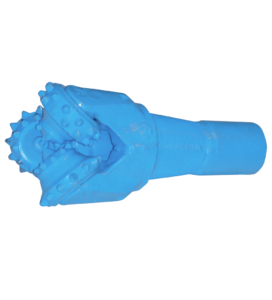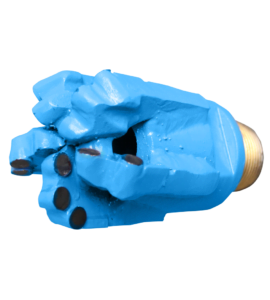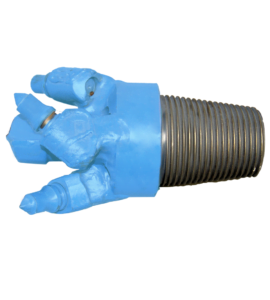by Joe Haynes, Lone Star Drills president
Determining the right rotary drill bit for your project is a critical decision that has the potential to save you money on costly replacements and help optimize performance. Whether it’s an environmental, soil sampling or well water drilling application, there’s an ideal bit for each rock formation and soil type.
You might be drilling livestock wells in the Midwest’s soft soil formations, or perhaps water wells in Guatemala’s hardest volcanic rock formations. Diverse environments require different drill bits to effectively tackle the challenge.
Think of the proper drill bit as a key unlocking a door — choose the right key and the door opens. Choose the right bit and the project runs smoothly. Take a look at these different types of bits and their performance characteristics.

Step Drag Bits
Clay, sand and medium hard formations meet their match with step drag bits. The three-wing, three-step bits drill pilot holes quickly and feature a hardness that ensures longevity and a sharp cutting edge. Step drag bits come in four diameters: 3-7/8 inch, 4-1/2 inch, 5-7/8 inch and 7-inch. For opening holes, pair the bits with reamers that are available in several sizes.

Roller Cone Bits
Power through tough soils and rock with three carbide-studded wheels featuring bearings that spin as the roller cone bit turns. Their durable tungsten-carbide inserts outperform steel-based products with increased longevity and productivity. Roller cone, or tricone, bits come in either a closed-bearing or open-bearing design. Lone Star offers the more economical open-bearing option. Choose from 3-7/8-inch or 7/8- inch diameters.

Polycrystalline Diamond Compact Bits (PDC)
Bore through medium rock formations with spinning PDC cutters that minimize plugging to achieve maximum penetration rates. Their asymmetrical-balanced blades create precise round holes and minimize bit whirl to prevent premature wear. Select either 3-7/8 inch or 5-7/8 inch diameters.

Claw Bits
Rip, dig and loosen the most challenging clay formations while minimizing bit maintenance by using a claw bit that features three replaceable fingers — which give the bit its name. By producing a ripping action, the fingers reduce over-torqueing and stalling leading to increased durability and longevity. Select between 3-7/8-inch or 5-7/8-inch diameters.
Still not sure which bit to use? Contact the Little Beaver team for expert application advice. View Lone Star drill bit images on our accessory page.